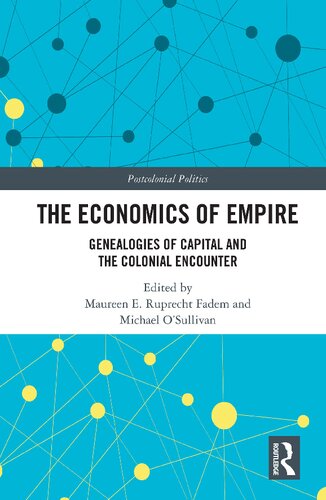

Most ebook files are in PDF format, so you can easily read them using various software such as Foxit Reader or directly on the Google Chrome browser.
Some ebook files are released by publishers in other formats such as .awz, .mobi, .epub, .fb2, etc. You may need to install specific software to read these formats on mobile/PC, such as Calibre.
Please read the tutorial at this link: https://ebookbell.com/faq
We offer FREE conversion to the popular formats you request; however, this may take some time. Therefore, right after payment, please email us, and we will try to provide the service as quickly as possible.
For some exceptional file formats or broken links (if any), please refrain from opening any disputes. Instead, email us first, and we will try to assist within a maximum of 6 hours.
EbookBell Team

4.0
86 reviewsThe Economics of Empire: Genealogies of Capital and the Colonial Encounter is a multidisciplinary intervention into postcolonial theory that constructs and theorizes a political economy of empire.
This comprehensive collection traces the financial genealogies associated with the colonial enterprise, the strategies of economic precarity, the pedigrees of capital, and the narratives of exploitation that underlay and determined the course of modern history. One of the first attempts to take this approach in postcolonial studies, the book seeks to sketch the commensal relation―a symbiotic "phoresy"―between capitalism and colonialism, reading them as linked structures that carried and sustained each other through and across the modern era. The scholars represented here are all postcolonial critics working in a range of disciplines, including Political Science, Sociology, History, Peace and Conflict Studies, Legal Studies, and Literary Criticism, exploring the connections between empire and capital, and the historical and political implications of that structural hinge. Each author engages existing postcolonial and poststructuralist theory and criticism while bridging it over to research and analytic lenses less frequently engaged by postcolonial critics. In so doing, they devise novel intersectional and interdisciplinary frameworks through which to produce more greatly nuanced understandings of imperialism, capitalism, and their inextricable relation, "new" postcolonial critiques of empire for the twenty-first century.
This book will be an excellent resource for students and researchers of Postcolonial Studies, Literature, History, Sociology, Economics, Political Science and International Studies, among others.